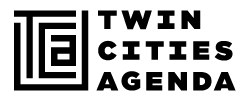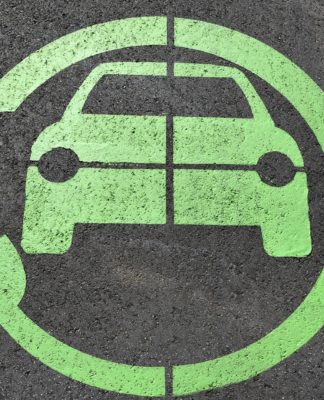
You want to be smarter. Everybody does. But “smart” is not an objective term – having a high IQ makes you “smart,” yes, but so does understanding the way a carburetor works, or being able to recognize sarcasm and satire. We aren’t here to define what being smart is, but rather give you a few ideas on how to unlock your own potential, whatever it may be.
Live a smarter life. Not necessarily a better life – that’s up to you. This isn’t a guide to launch the next Google, manipulate the global economy, or understand Russian literature. These tips and tricks are here simply to help your brain be the best brain it can be, no matter what you decide to do with it.
Stay hungry:
Not for food, although we will discuss the impact of diet later on, but for new knowledge and experience. Have what some call a “traveler’s mindset.”
The logic is this: When you travel, the difference in culture, language, and lifestyle puts a strain on your brain that allows (forces) it to create neurons. The more neurons you have, the easier it is for your brain to store, and access information. Neurons are your path to intelligence.
You don’t have to blow your savings traveling abroad, however, just act as though you are. Most of us don’t have the time or money to travel around the world on a constant basis, and you don’t have to. Explore and be curious about the world around you here, today. Ask questions. Think critically. Stay in the moment and take in everything you see, hear, think, feel. View normal, everyday things in new and different ways.
Try this: Look at something you see everyday, for example a street sign. Think about the color, the font, and the shape. Think about who designed it, and where it was created. Do this with everything you see. Paying attention to the little things, the small details that surround you, is one of the best, and easiest ways to develop your brain, increase your attention span, and keep your brain hungry for new information and understanding.
Prime your subconscious, listen to your instincts:
Thinking can be categorized into two main parts: Conscious and subconscious.
Your conscious mind tells you right from wrong, it dictates social interactions and creates your personality (at least on the surface). It takes every outside signal and uses it to process information. The subconscious does pretty much everything else, and generally you’re not even aware of it (hence subconscious). This comes through your instincts, and intuition. That feeling in your gut; that little voice in your head. We’ve been trained to ignore this voice, and to act only on external (conscious) indicators to inform our thought process. Your subconscious, however, has the ability to store incredible amounts of data (much more than your conscious) that form many of your decisions, and can form many more if you let it.
Listen to your instincts, as they are handing what is stored in your subconscious back to you.
Need proof? A study conducted by the School of Psychological Sciences at Tel Aviv University in which students were given numbers in rapid succession (so rapid they couldn’t memorize them) found that those who were shown only a couple of numbers at a time were consistently unable to predict the next number as well as those shown six numbers or more. The conclusion was that the subconscious was able to digest and store information more quickly and efficiently, and thus predict which number was coming next in a larger sequence of numbers, more so than the conscious which only stayed focused on the smaller set of numbers.
The full study can be found here: Going with your gut feeling: Intuition alone can guide right choice
But how can you make your instincts more effective, and fill your subconscious with new data? Adopt the aforementioned traveler’s mindset; keep your mind active, by reading, watching, interacting, learning. The more you give to your subconscious, the more information you have to access to, the more collective ideas you’ll have, and the more questions you’ll be able to answer.
Listen to your instincts. They will help you.

Use your brain more, but also use it less:
Wait. What?
It sounds contradictory, obviously, but look at it this way: Pushing your brain to the extreme, spending time thinking critically and deeply, has great effect on your cognitive functions. Mostly what we’ve talked about thus far will exercise your mind, stimulate thought and creativity. You should spend as much time as you can throughout the day just thinking through things, and thinking about things in new and complex ways.
But you also have to give your brain a rest. Meditation is a common and efficient way to do this, but you don’t have to go full Buddha. Take a stroll through a park or peaceful space (without your phone, computer, music, or any other distractions) and take in your surroundings through your senses. Do your best to clear your mind and not think about anything but where you are. This will calm your mind, and give you space and time so you can hear your subconscious (and everything stored therein).
Being smarter is not always about how much you use your brain, but the way you use it.
Get regular exercise:
Not allowing your body to move and groove is detrimental to your mental as well as your physical health.
Everyone is talking about working out, or posting videos about working out, or describing the way they work out. That’s not what this is about. Exercise offers more than just physical benefits. While it’s not bad to look (and feel) your best physically, working out your body leads to increased energy and mental positivity as well.
It also allows your brain to get more oxygen. Your brain only makes up 2% of your body weight, but uses 20% of the energy. Oxygen replenishes that energy and without it your brain has trouble storing and accessing new information, and leaves your mind sluggish and uninspired.
Not only will you then have trouble storing new information, but is also tougher to access what is already there.
Eat well:
What you eat does greatly impact your brain, and you will be able to process thoughts quicker and more efficiently if you eat well. Sure, candy gives you an initial burst of energy from the sugar, but that is followed by a crash that makes it hard to think and process information. Junk food might taste good but the ensuing food coma will do nothing for your mind.
Being aware of what goes into your body will keep your brain functioning at the highest level, and thus make you smarter.
Many foods have been identified as great foods for the brain. Fish, nuts, berries, leafy greens (especially spinach, collards, and kale), and eggs are always beneficial to increasing and maintaining cognitive function. And you don’t have to cut out sweets entirely: when your sweet tooth kicks in, chocolate has been shown to have benefits in increasing blood flow to the brain and improving memory as well.
Staying hydrated is also key, and drinking at least 8 cups of water throughout the day is still one of the best ways to maintain productivity. Also, the antioxidants in tea help to increase neuron production, and coffee is great for an added boost as needed.
Sometimes, eating well takes more than just a little bit of willpower. This leads us to our last tip:
Just do it:
At the risk of getting sued by Nike, this slogan is one of the things their marketing team got right. Your brain gets tired of making decisions. You spend the entire day making decisions, processing the things you see, employing the skills we’ve talked about here. By the end of the day, your brain is tired, fatigued even and you give in to whatever is easiest.
How do you prevent that from happening?
When you want to do something, don’t think forever about it. Just do it.
This isn’t to say that you should act on every thought that comes into your head and then blame it on us; don’t buy a yacht on a whim or quit your day job because you’re just not feeling it today. But when it comes to smaller decisions, for example which of your tasks to complete first or the way you’d like to go about completing them, or whether or not to have a little more coffee, or even what shirt to wear in the morning (Albert Einstein, Steve Jobs et al. famously didn’t choose outfits in order to save brainpower), just go for it. Don’t waste your time thinking it over and over and over. Get it out of the way and keeping moving forward.
We all have what feels like countless decisions to make everyday. This practice will keep your brain fresh for making the next decision, and you’ll be much more efficient when making it.
Everything mentioned in this article requires a certain amount of willpower. But you don’t have to change as much as you think. Know yourself, and know how much you can handle in a day. If it helps, make a list the night before a big day of everything you need to accomplish, and stick to it. Crossing things off one at a time creates a sense of accomplishment, and you won’t get burned out focusing on things not on the list.
Don’t overdo it. Just do what you can.
Becoming smarter often comes, purely and simply, from staying in control of your mind.
Read next: Beyond Human: Technology of the future is closer than you think
















